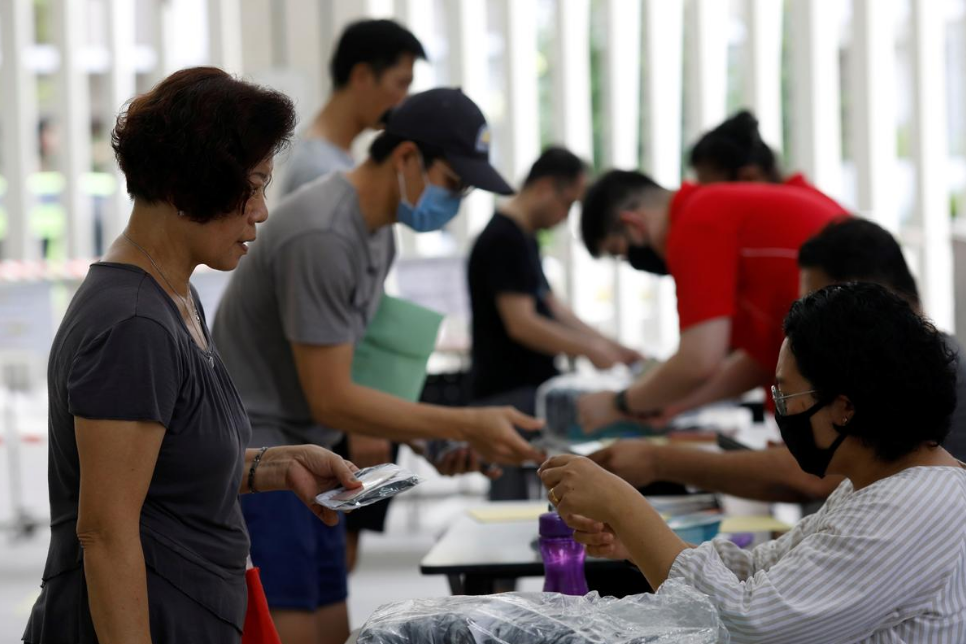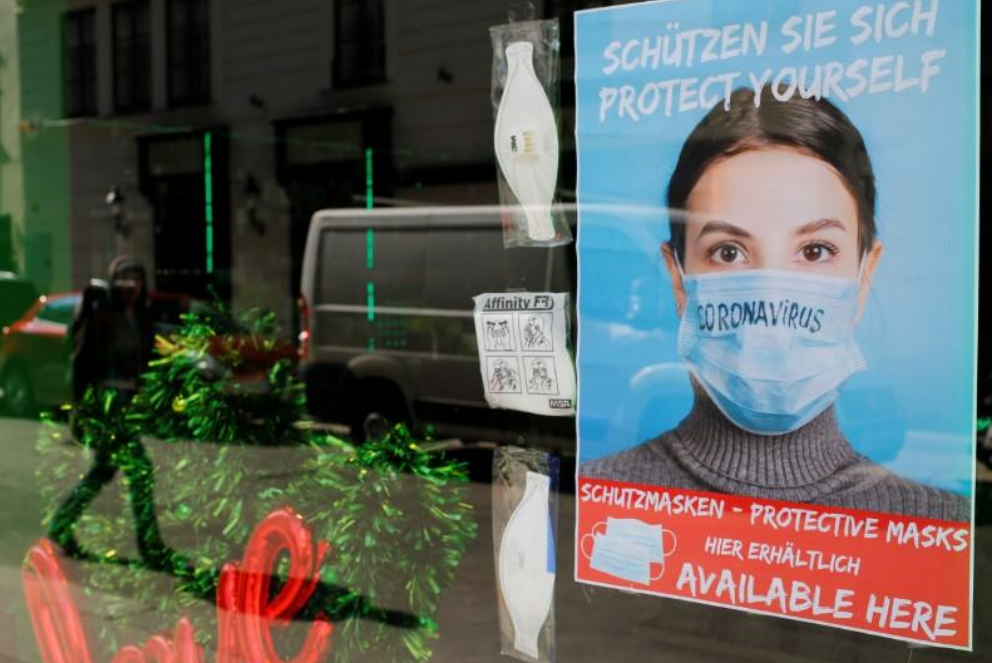Chinese State Councilor and Foreign Minister Wang Yi spoke to his Singaporean and Austrian counterparts on Tuesday over the phone and discussed establishing a mechanism to facilitate the flow of certain people and medical products and equipment needed fighting COVID-19.
Wang said both sides should strengthen information exchange and experience sharing, set up a channel to facilitate essential travel and the transportation of medical goods and equipment.

Residents receive free reusable masks distributed by the government at a community center in Singapore, April 5, 2020. /Reuters
Residents receive free reusable masks distributed by the government at a community center in Singapore, April 5, 2020. /Reuters
Singapore
In his phone talks with Singapore Foreign Minister Vivian Balakrishnan, Wang expressed appreciation for the mutual support and effective collaboration between China and Singapore amid the COVID-19 outbreak.
The special summit of the Association of Southeast Asian Nations (ASEAN), China, Japan and South Korea (ASEAN Plus Three or APT) on COVID-19 was a great success, Wang noted, adding his willingness to hold the special foreign ministers' meeting as soon as possible.
Read more:
A tale of two outbreaks: How Singapore's response overlooked migrant workers
Both ministers had ongoing discussions on how to gradually resume economic activity and exchanges, and spoke about how safe international travel could be reintroduced in the "near future."
They also reaffirmed their commitment to maintain supply chain connectivity, especially for medical supplies and food, and the importance of continuing to enhance regional and international cooperation.
Austria
Meanwhile, Wang called for the two sides to support and encourage the World Health Organization (WHO) in playing an important role in COVID-19 fight during his phone conversation with Austrian Foreign Minister Alexander Schallenberg.

Face masks are on display in a closed shop during the spread of COVID-19 in Vienna, Austria, March 19, 2020. /Reuters
Face masks are on display in a closed shop during the spread of COVID-19 in Vienna, Austria, March 19, 2020. /Reuters
With the democratization of international relations, international affairs should be handled through negotiations among countries rather than decided by a few major powers, he said, adding that China and Austria should support and encourage the WHO to play its due role in the global fight against the outbreak.
Noting that the year of 2021 will mark the 50th anniversary of the establishment of China-Austria diplomatic ties, Wang looked forward to a stronger strategic partnership after defeating the novel coronavirus.
Read more:
Austria loosens COVID-19 lockdown but masks made compulsory outside
For his part, Schallenberg appreciated the medical supplies and assistance China offered for Austria in combating the virus, while each both countries to draw on each other's strengths to resume steady social and economic development.
With the epidemic situation relatively under control, Austria and China should enhance mutual learning, ensure essential personnel exchanges and steadily restore social and economic order, said Schallenberg.
The two sides should also make good preparations for celebrations for the diplomatic relations anniversary so as to usher bilateral relations to a new phase, he added.
(Cover: Tianhe International Airport after the lockdown was lifted in Wuhan, China, April 10, 2020. /Reuters)